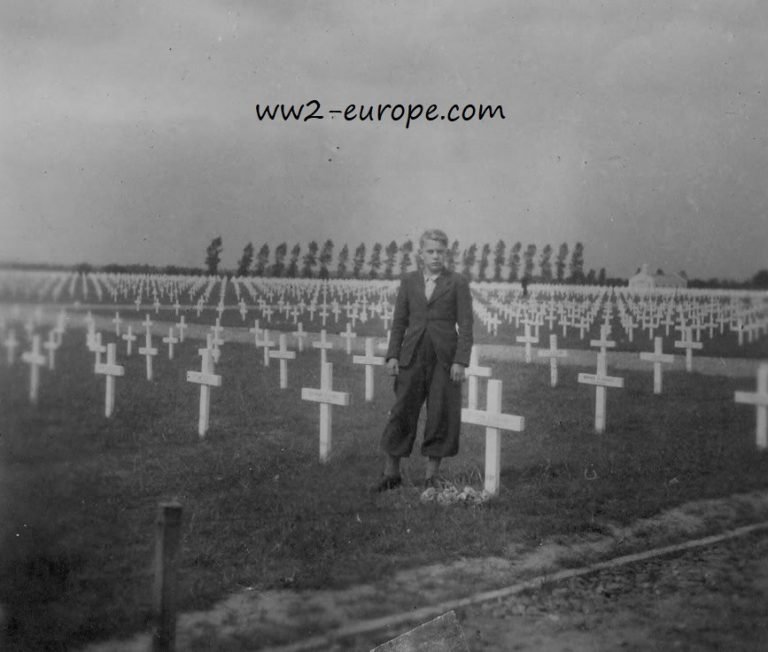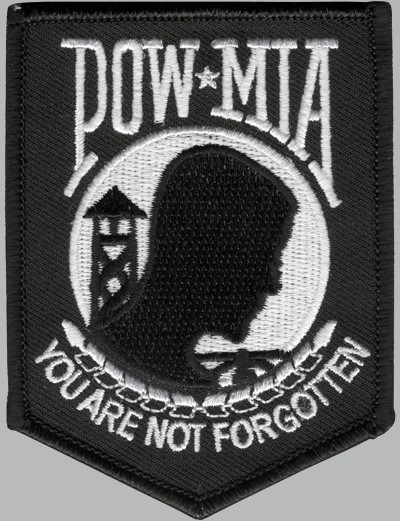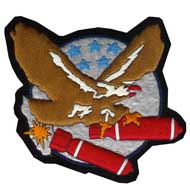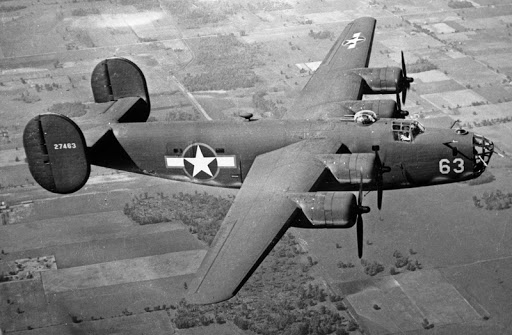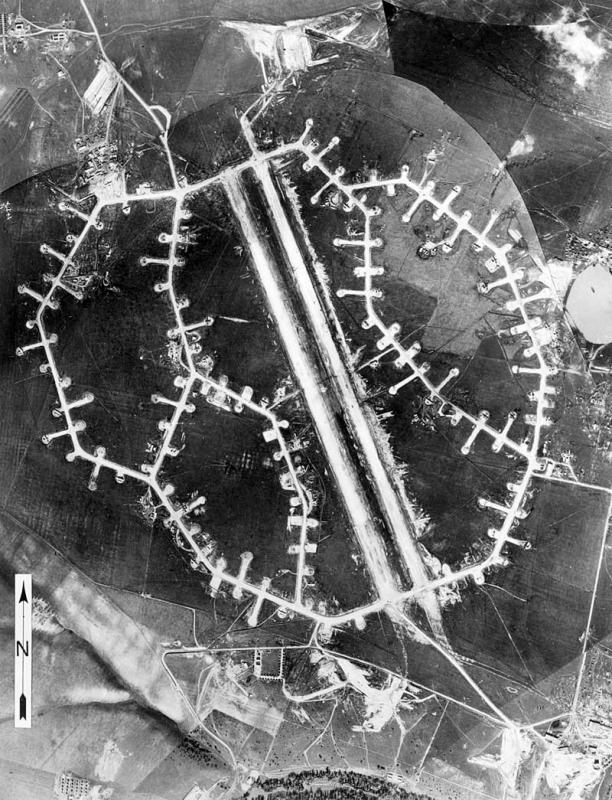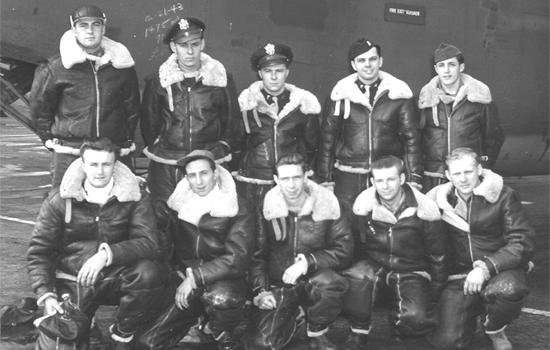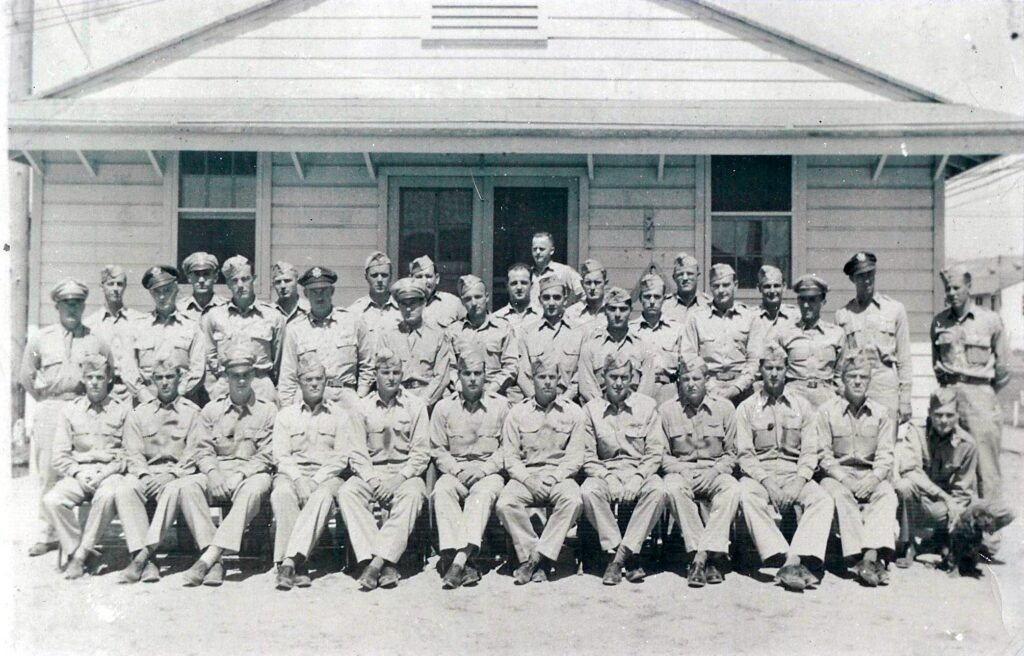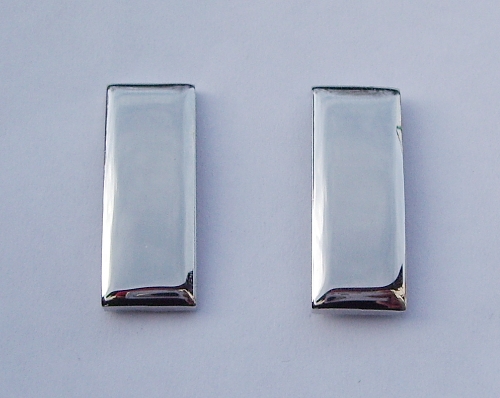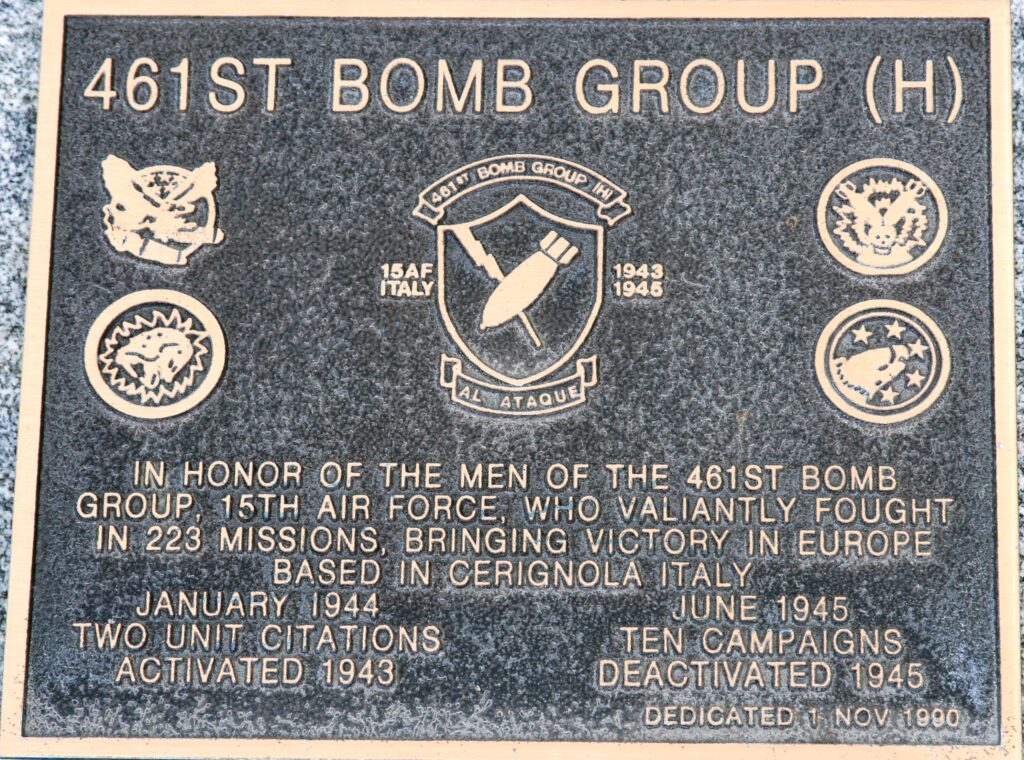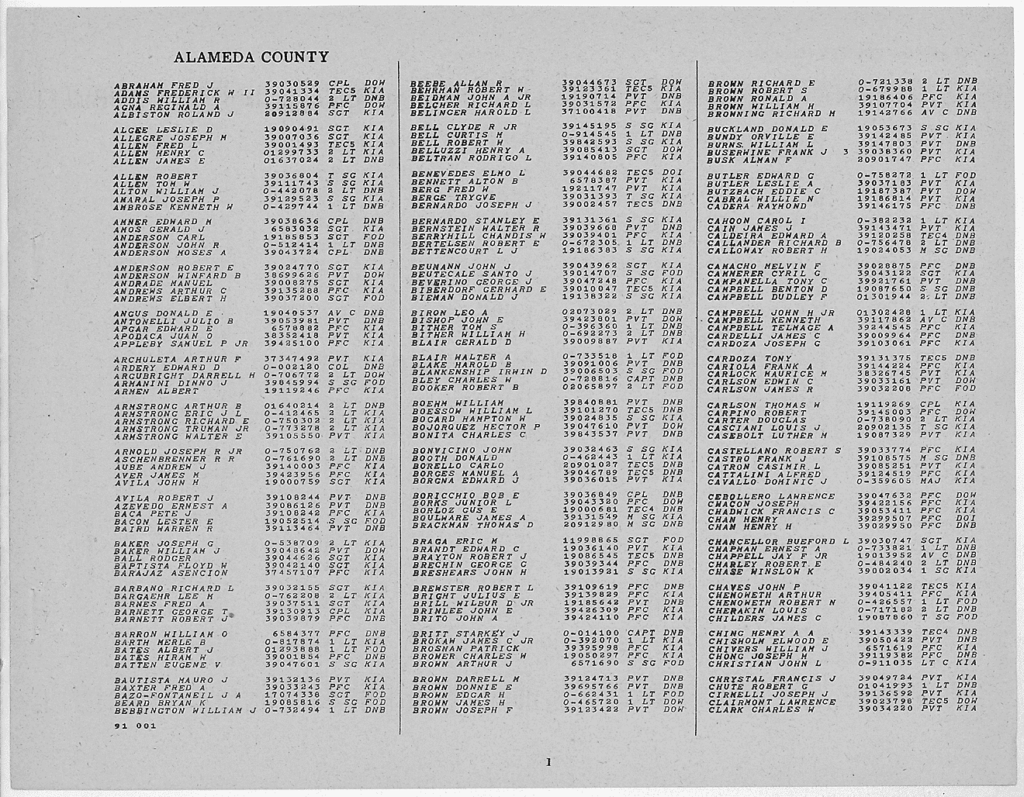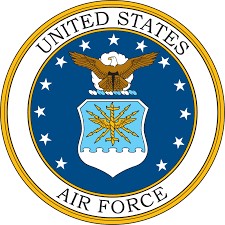Name and Rank, 1st lieutenant Robert S. Brown.
Unit/Placed in, 764th Bomber Squadron, 461st Bomber Group (Heavy).
Robert is born approx. on no record in Alameda County, California.
Parents and Siblings, no record.
Robert enlisted the service from Michigan with service number # O-695871.
Robert S. Brown was a Navigator (B-24) in the 764th Bomber Squadron.
Robert‘s Crew-members and their position on-board the plane a B-24 were,
1st Lt. Grover F. Mitchell PIlot
2nd Lt. Herbert H. Hartford Co Pilot
1st Lt. Robert S. Brown Navigator
1st Lt. Walter J. Rokben Unknown
SSgt. Ira W. Habart Top Turret Gunner/Engineer
SSgt. Lynwood C. Harrell Left Waist Gunner
SSgt. Donald D. Robinson Right Waist Gunner/Radio Operator
SSgt. Jasper D. Trout Unknown
SSgt. Donald G. Charland Unknown
Sgt. John L. Kennedy Nose Turret Gunner
Robert was KIA when he was on a mission to Bomb a Tank factory in Linz, Austria when they were attacked by enemy fighters and crashed somewhere near Linz, Austria, two crewmember survived the others died on July 25, 1944, Robert is honored with the Air Medal with 3 Oak Leaf Cluster, Good Conduct Medal, American Campaign Medal, Army Presidential Unit Citation, European-African-Middle Eastern Campaign Medal, WW II Victory Medal.
The MACR report was too big and was bad written so little information, about the Function of the Crew or else mentioned.
Robert is buried at Epinal American Cemetery and Memorial, Epinal, Departement des Vosges, Lorraine, France.
Tablets of the Missing
Thanks to http://www.461st.org/
Jean Louis Vijgen, ww2-Pacific.com ww2-europe.com
Air Force Info, Rolland Swank.
ABMC Website, https://abmc.gov
Marines Info, https://missingmarines.com/ Geoffrey Roecker
Seabees History Bob Smith https://seabeehf.org/
Navy Info, http://navylog.navymemorial.org
POW Info, http://www.mansell.com Dwight Rider and Wes injerd.
Philippine Info, http://www.philippine-scouts.org/ Robert Capistrano
Navy Seal Memorial, http://www.navysealmemorials.com
Family Info, https://www.familysearch.org
WW2 Info, https://www.pacificwrecks.com/
Medals Info, https://www.honorstates.org
Medals Forum, https://www.usmilitariaforum.com/
Find a Grave, https://www.findagrave.com
Tank Destroyers, http://www.bensavelkoul.nl/
WordPress en/of Wooncommerce oplossingen, https://www.siteklusjes.nl/
Military Recovery, https://www.dpaa.mil/
Mission #69
25 July 1944
Target: Herman Goering Tank Works, Linz, Austria
And then it happened. Major Burke’s long string of highly successful missions was broken by disaster. Now the Commanding Officer of the 766th Squadron as a replacement for Major Dooley, who had returned to the United States, he led a four flight formation of twenty-one airplanes in an attack on the heavily defended Herman Goering Tank Works at Linz, Austria. Just after the bomb bay doors had been opened and the formation had begun its bomb run, it was attacked by twenty-five twin engine and 125 single engine enemy planes.
Taking advantage of the fact that most of the planes flown by new crews did not have their ball turret down on the bomb run, the twin engine planes came up under the lead flight of the formation and began throwing rockets through the bomb bay doors. The first plane to go down was Major Burke’s lead plane. Instead of packing the formation in close, the inexperienced bomber pilots spread the formation. Captain Franklin, 1st Lt. Henry, Lt. King, Lt. Sullivan, and Lt. Gizelba, flying the Deputy Lead plane, salvoed their bombs and attempted to rally the formation. By this time, however, the single engine fighters, still attacking low but now from the rear, picked off planes in the struggling formation. Eleven bombers were knocked down as parachutes, tracers, rockets, enemy fighters, and exploding bombers filled the air with confusion. The nose gunner on one of the crews which returned from the mission counted thirty-two parachutes in the air at one time.
The pilot in the lead plane with Major Burke was 1st Lt. Joseph B. Hesser. Pilots of other planes lost were 1st Lt. Edwin W. Bowyer, 2nd Lt. Robert W. Fisher, 2nd Lt. Richard E. Freeman, 2nd Lt. Glenial Fulks, 2nd Lt. Kenneth O. Githens, 2nd Lt. John J. Kane, 2nd Lt. Grover F. Mitchell, 2nd Lt. Rolland T. Olson, 2nd Lt. Wray M. Stitch, and 2nd Lt. Robert A. Warren, Jr. In addition to the eleven bombers shot down over the target, four more were lost on this mission. The plane piloted by 2nd Lt. Douglas A. Herrin, one of the eight that returned to the base, was so badly shot up that it was salvaged. 2nd Lt. Casper T. Jenkins, with three wounded men aboard, washed out his plane when he attempted to land it at Foggia. 1st Lt. Edgar M. Trenner, using parachutes as a substitute for flaps and landing with a punctured tire, washed out his plane at the base. 2nd Lt. Robert G. Wester bailed his crew out over the friendly Isle of Vis.
The last flight in the formation was led by 1st Lt. Robert E. Arbuthnot. As the enemy planes flew past his plane in attacking the bombers in the front of the formation his gunners had a field day. They claimed 14 enemy aircraft destroyed, 6 probably destroyed, and 3 damaged. The claim of the twelve crews which finally returned to the base were 31 destroyed, 19 probably destroyed, and 9 damaged. Of the 19 planes claimed as probable it is likely that many of them were actually destroyed, but the gunners were too busy to follow the downward flight of crippled planes to the ground.
Of the 113 officers and men who went down on this mission, seven officers and nine enlisted men were flying their fiftieth sortie. 1st Lt. Ernest R. Henry was the only individual flying his fiftieth sortie on the mission to return to the base.
For the first time in its history, enemy fighters successfully turned back the 461st Group short of its target.
